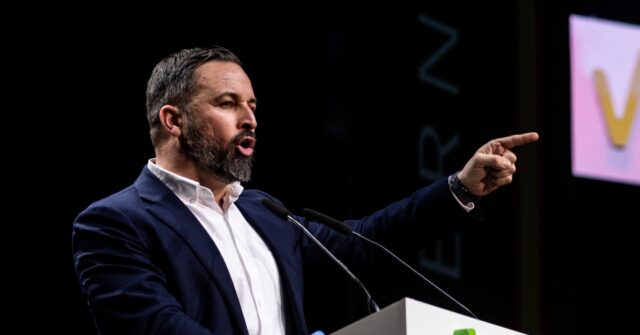Santiago Abascal, the leader of Spain’s populist-nationalist VOX party, has been appointed as the first chairman of the newly established Patriots for Europe party, which will emerge as the third-largest faction in the European Parliament. During the party’s general assembly held in Paris, Abascal accepted the nomination, leading a coalition of parties from 11 different nations with a collective total of 86 Members of the European Parliament (MEPs). Notable political parties represented in this alliance include Marine Le Pen’s National Rally from France, Viktor Orbán’s Fidesz from Hungary, Matteo Salvini’s Lega from Italy, and Geert Wilders’ Party for Freedom from the Netherlands. This development follows an upswing in right-wing representation in the EU Parliament following the recent elections, positioning Patriots for Europe behind the establishment-left Socialists & Democrats and the neoliberal European People’s Party.
Abascal’s ascent to the leadership of Patriots for Europe comes on the heels of VOX’s departure from the European Conservatives and Reformists Party, led by Giorgia Meloni, in July. While he affirmed his ongoing friendship and alliance with Meloni, Abascal stressed the necessity of forming a larger group capable of robustly countering what he perceives as leftist and centrist-right coalitions in the European Parliament. In his address in Paris, he emphasized the urgency for a united front against what he deems a globalist agenda, calling it imperative for those advocating for love of their homeland, freedom, and traditions to band together.
Highlighting the political shifts occurring internationally, Abascal referenced Donald Trump’s recent election victory as indicative of “winds of change,” which he believes the new alliance should harness to fortify national sovereignty against global threats. He voiced a clear intention to challenge the existing political order, advocating for an alternative majorities and resisting the influences of “stateless federalism” that he claims have authoritarian undertones reminiscent of the Soviet era. Abascal’s rhetoric reflects an eagerness to capture momentum in favor of nationalist policies and to reclaim autonomy for individual nation-states within Europe.
In his cautionary comments, Abascal pointed to various legal challenges faced by prominent right-wing leaders such as Marine Le Pen and Matteo Salvini, suggesting that these prosecutions serve as tactics employed by the globalist left to undermine popular leaders and stifle European voices. He denounced the actions of the EU as a concerted effort to quell dissent and highlighted the perceived attacks on freedom of expression, particularly regarding political opposition. The implication of a coordinated effort to silence dissent among the populace was a central theme in his speech, aimed at rallying support for the new party’s mission.
Furthermore, Abascal expressed alarm over what he described as “ruinous ideologies” infused into society, particularly targeting educational frameworks. He lamented the rise of wokeness and what he termed “climate fanaticism” as detrimental forces that threaten traditional values and economic stability. By framing these ideologies as destructive, he seeks to galvanize support against perceived indoctrination and advocate for policies that prioritize the interests and voices of working-class Europeans. This emotional and politically charged commentary functioned as a rallying call to those who feel marginalized by mainstream liberal policies.
In response to Abascal’s election, Hungarian Prime Minister Viktor Orbán offered his congratulations, echoing sentiments of resistance against the European bureaucratic elite. He reaffirmed the shared commitment among the Patriots for Europe coalition to advocate for the interests of European families, halt mass migration, and enhance Europe’s global competitiveness. The mutual support expressed between these right-wing leaders signifies a collective resolve to confront common challenges posed by both internal and external pressures while fostering a political environment conducive to nationalistic and populist priorities across Europe.

